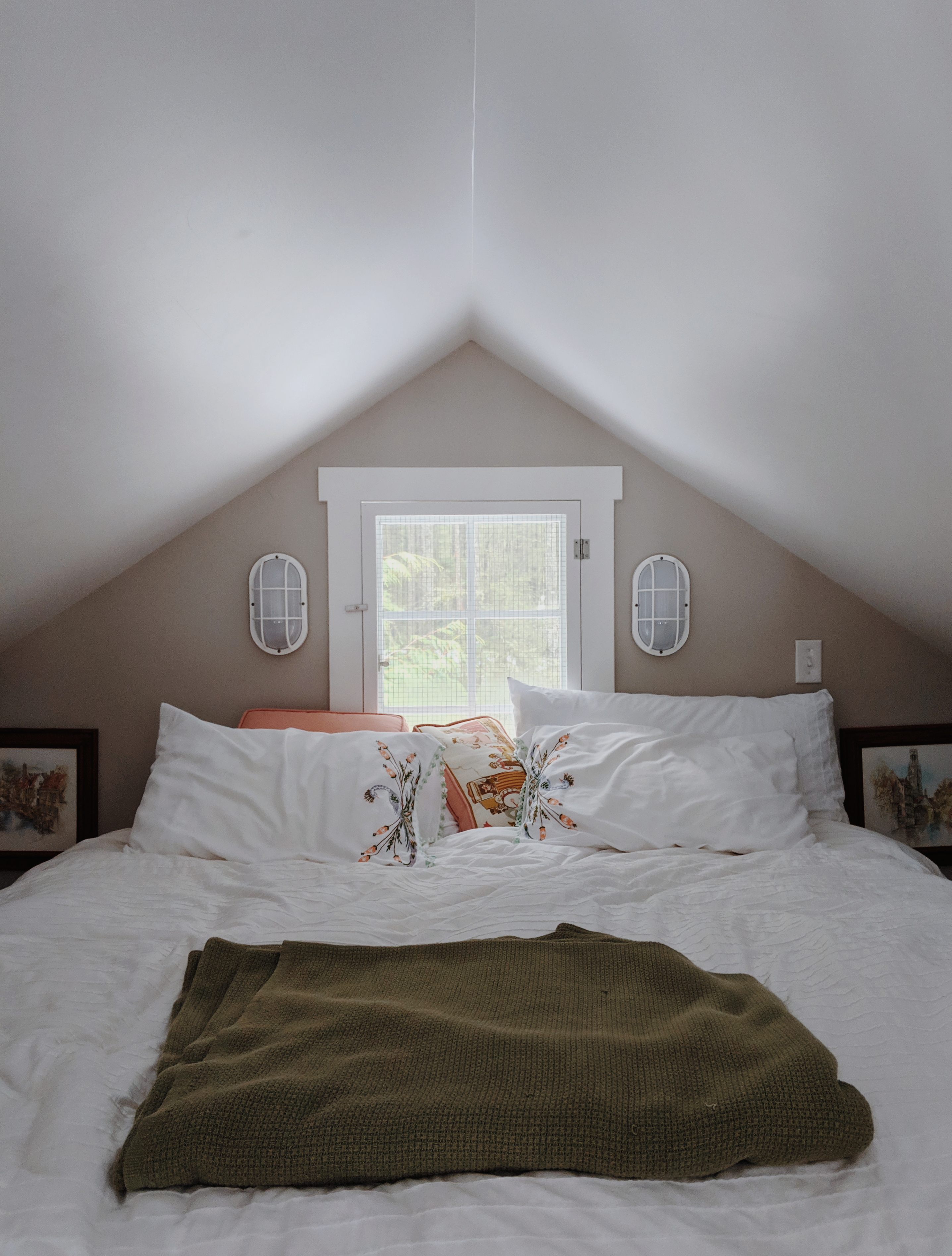It’s gratitude. You can all click out now. You’re welcome.
(Did I just kill this post?)
I did watch a few episodes of Marie Kondo’s Tidying Up on Netflix. It was cute. The families were sweet. I did tear up a bit, when watching during PMS. I also realized, god forbid, that it could use like 5% of the drama that Hoarders had. Maybe a few flashbacks, you know? What I’m saying is that I didn’t learn a ton from it, though I do think her methods are effective for keeping things organized, if you stick to them. Which is her MO. My heather gray sweatshirt collection thanks you, Mrs. K.

(Photo by Charity Hestead Kubena)
But the most important lesson I learned came from one of the very first lessons in the very first episode, and thankfully again and again afterward. It was to thank your belongings. This is not new, if you followed Marie Kondo before, you’ll know that she’s always promoted this idea of gratitude.
Upon tidying up some weeks afterward, I literally thanked a rock. It was a pretty white rock I’d gathered from who knows where, but that I added to my crystal collection, even though (as it knew) it was just a lowly rock. I said, “Thank you, rock.” But then. What to do? Unlike her clients, I wasn’t about to toss everything I own into some big white trash bag, and it wasn’t because I had that big of an attachment to any of it. It was because I didn’t want to waste. (And a rock is kind of a weird thing to throw away. I’ve also had this issue with pennies in the past. Like, I don’t need you, penny. You are a silly form of US currency. I would need 99 more of you to get anywhere.) My aversion to sending things to the landfill is as strong Ron’s love of baseball cards in episode 2. Also my affinity for rocks.
Like so many green living bloggers, it was a constant eye-roll moment for me, seeing people get rid of stuff in less-than-mindful ways. (We don’t really know what happens to it all, we can only shudder at the thought.) I think it was a little shocking for a lot of us, honestly, because it revealed the tension between movements like zero waste and minimalism.
Generally speaking, minimalism concerns itself more with the idea of peace of mind via detachment, which can sometimes (yet not always) come with a decreased carbon footprint. Meanwhile, zero waste is pretty pointedly about environmental impact, but doesn’t necessarily focus on the emotional benefits of less. Neither of them really address a person’s innate desire for creative expression—neither the visions of stark white walls nor neatly lined mason jars spark joy in an artist’s heart.
But both movements, and yes, even the KonMari method, evoke some degree of care, whether mindfulness toward earth, toward your mental state, or toward your belongings and how they surround you. And so no matter which speaks to you most, it seems most important to remember: say thanks.
Thank you, clothes, for I loved you once (inside a fluorescent department store dressing room).
Thank you, modest apartment, for you allow me a nice, warm space to snuggle pets.
Thank you, trash, for at one point you were treasure.
Thank you, clearance-Target ottoman, because you’re the ultimate scratching post for my cat.
Thank you, empty candle jars that I haven’t found time to clear, yet can’t bring to throw away.
Thank you, desk dad built, that I hope he doesn’t find out I don’t sit at.
Thank you, rock, because the memory of a second grade geologist wannabe gives me joy.
No matter if you trash it or keep it, recycle or upsycle, donate or sell. No matter if you’re for her or against, prefer to fold or to hang. We have to agree: She’s right. We should all be grateful for our stuff. For the lives we have and the privileges we enjoy. Thanks, Marie Kondo, for the reality check. I needed it.
Oh, and as for the rock: anyone know the right way to donate such a thing? Or should I release it at my local park? I couldn’t find a space for it inside, but I figured, I’d just put it on the patio and let it enjoy another spring.
your two cents